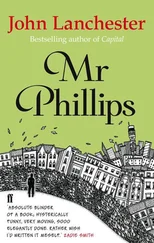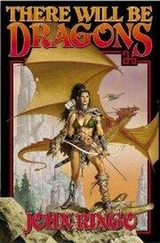After that first two-week shift on the Wall I went home. The trip was the reverse of the one I’d made to the Wall: lorry, train, second train, bus, walk. It might sound similar but it couldn’t have been more different, and the main difference was that the whole company was travelling back with me. A company of thirty-plus, heading off together after two weeks of what amounted to hard labour and semi-incarceration. We were a little, I think the word would be, rowdy . No alcohol is allowed on the Wall, a strict rule strictly enforced: if you’re caught you and anyone else involved, or thought to be involved, automatically get extra days to serve. Somehow, though, as soon as we were on the lorry, two-litre bottles of spirits magically appeared. We passed them around, swigging happily, and again I felt the pure joy you sometimes got on the Wall, the joy of relief, when something horrible is over. One of life’s great pleasures, deeply loved by all Defenders: the moment when you get to say: I hated that, but now it’s finished.
This was the first chance I got to interact with the other shift. A strange thing: we were all in the same place at the same time, doing the same thing, but we hardly ever had anything to do with each other, apart from those few fumbling moments of handover at either end of a watch. That could make you hate each other, because your emotions, at that moment, couldn’t possibly be more out of sync: starting a shift meant depressed, resentful, apprehensive, bitterly doing the worst thing in your life; finishing one meant euphoric, ecstatic, relieved, skipping off to the best bit of the day. Going off shift, you felt no ill-will to your doppelgänger, but that wasn’t true in reverse, because he hated you. In twelve hours it would be the other way around. Nothing personal: when you came on shift, you always hated the person you were relieving. The fact that you knew the other set of emotions so completely, that you knew exactly what the other person was feeling, made it worse. Your shift twin was a person you met twice a day, about whom you had very strong views, whom you didn’t really know.
After the lorry, we got on a train, a civilian train, which ran from the nearest town up to the capital. I felt sorry for the other passengers: we were loud, we were rude, we didn’t care what anyone else thought or what they needed – this was our train. People were used to that kind of behaviour from Defenders, and tended to give us a lot of space. (Good idea.) When we piled into our carriage, a Breeder with a small child at the far end picked up her child and her bags and moved elsewhere. (Also good idea.) It was warm, indeed verging on overheated, after the two weeks I’d spent on the Wall. I’d forgotten what it felt like to be hot; it was nice for the first couple of minutes, and then I could feel myself starting to sweat. We all took off multiple layers of clothing. There was yet more booze – someone had taken the chance to pick up another couple of bottles at the station. We got stuck into the drinking. The train set off. Some of the company were singing. Shoona and Cooper, after two drinks, were sitting holding hands and occasionally, when they thought nobody was looking, kissing. You could see that they liked each other more than either let on. I had found myself, not by chance, a seat next to Hifa at the end of the carriage. Hifa minus ten layers of clothing was lithe, skinny, tough and frail at the same time. Her black hair stuck out in all directions. It was only about the third time I’d seen her without a beanie or cap. We were sitting there talking about nothing much, when a man, a Defender, came and dumped himself in the seat across from us and held out a bottle of vodka. I took it, nodded thanks, took a swig, handed it to Hifa, who took a swig and handed it back to the man. All through this he kept looking at me. Then I got it.
‘You’re him!’
He laughed. A hot waft of alcohol came across the train table. It was indeed him, my shift twin. It was no surprise I didn’t recognise him, since he was another Defender I’d never seen out of his Wall clothes, swaddled in layers of cold-weather protection, wearing a beanie with a hood pulled down over it. Take four sets of outerwear off him, and he was a slim dark-haired man with brown eyes and a four-day beard. My age. That was to be expected, most Defenders were.
‘Hughes,’ he said.
‘Kavanagh,’ I said.
‘Chewy,’ he said.
‘I don’t love it, but I suppose so.’
‘You’re skinnier than I thought, Chewy.’
‘Same. It’s the—’
‘Yeah, I know.’
‘How long?’
‘Fifty-eight weeks.’
In the middle. Hughes didn’t ask how long I’d been on the Wall. He didn’t need to because he knew first-hand. He started to get up.
‘So, see you at training week. Just wanted to say hello.’
‘Thanks. Yes.’
He stood by our seats for a moment and raised the bottle in a toast.
‘Well, if you are going to Breed, you could both do worse.’
In unison, Hifa and I said: ‘Fuck off.’
He laughed and headed off down the carriage towards the sing-along, him and the train both swinging and swaying from side to side. The company had run through the repertoire of old pop songs, switched to obscene favourites (which had emptied the carriage of the few remaining civilians – we now had it entirely to ourselves), and then started singing the all-time Defender classic, melancholy and defiant and nihilistic all at once, not so much a song as a chant or dirge:
We’re on the Wall because
We’re on the Wall because
We’re on the Wall because
We’re on the Wall because [stamp three times, pause for three beats]
We’re on the Wall …
and so on. The effect was hypnotic, self-transcending; you never felt less of an individual, more of a group, than when you were singing that song/chanting that chant/dirging that dirge. There was no sign that the song was going to stop, so Hifa and I, a few seats from the rest of the company, joined in. I can’t sing, not even slightly, but with that particular song it doesn’t matter. Hifa’s singing voice was unexpectedly high and delicate. We’re on the Wall because We’re on the Wall, because …
Night had settled, and the train windows were now half-opaque, so you could choose whether to look out the window into the dark landscape outside, or keep your focus on the reflection back into the train carriage. I’ve always liked that trick of perspective and perception. I alternated between the reflection and the view through the window. Moon, cows, trees, a river; my own face with Hifa behind me, the battered train fittings, the other Defenders, singing and swigging. The view beyond or the view within, the landscape or the reflection, inside or outside. The cold out there, the warmth in here.
At London, we split up, after a certain amount of hugging and joshing, and carrying each other off the train, and throwing up. The company dispersed to take a variety of different trains to our various parts of the country. For me it was a short hop across town on the underground and then a two-hour stopping train to the Midlands. This time I was the only Defender, and instead of running away to other compartments, people snuck looks at me, until I looked back at them, and then they acted as if they’d been caught doing something they knew they shouldn’t. Then it was a wait for the local bus, last one of the evening, then the bus, then a walk from the terminus, a mile or so but feeling longer with my rucksack and my emotions about home both bearing down on me. My parents had left the porch light on, so I could spot our house from a long way off, the only semi in our street which was still illuminated on the outside. They’d be waiting up. I squared my shoulders and knocked on the door.
Читать дальше












